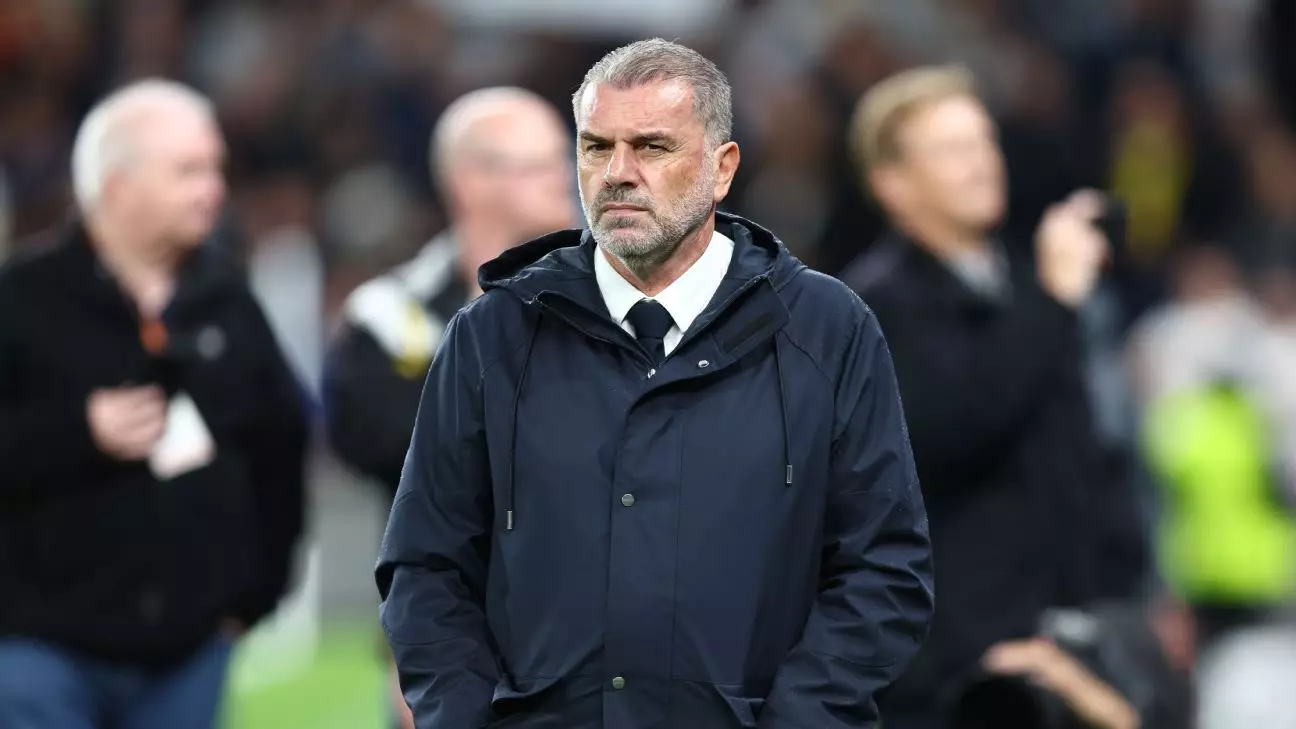In the world of football, the role of a manager embodies a paradox of prestige and pressure. Recent comments from Ange Postecoglou, the Tottenham Hotspur manager, shed light on the intense scrutiny faced by Premier League coaches. He specifically noted that Erik ten Hag, manager of Manchester United, has done commendable work amid the unrelenting expectations that characterize one of the world’s most competitive leagues. This analysis seeks to explore the underlying themes of managerial pressure, performance expectations, and the cyclical nature of criticism within the Premier League.
Despite having secured the Carabao Cup and the FA Cup since taking the helm in 2022, Ten Hag’s tenure has been marred by criticism. Finishing eighth in the league during the previous season ranks as a disappointing outcome in a club often associated with success. Postecoglou recognizes this duality, stating, “I think Erik’s in a real tough job. He’s done really well.” This acknowledgment underscores the complexities of managing elite clubs laden with high expectations and histories of success. It raises an important question: how do club performances align with managerial longevity and public perception?
Football managers often find themselves in a precarious balancing act between meeting immediate performance goals and envisioning long-term success. With the likes of Manchester United, whose storied legacy looms large, the need for immediate results can overshadow recent achievements, creating an unnervingly quick cycle of criticism. Postecoglou metaphorically suggests that managers live on a “spinning board” of scrutiny, where the one in focus suffers the brunt of criticism for fleeting outcomes.
Managers like Ten Hag endure relentless scrutiny that extends beyond mere performance metrics. The psychological toll of public criticism can lead to intense stress and anxiety, affecting decision-making and overall job performance. Postecoglou’s insights remind us that winning trophies, while critical, does not offer a reprieve from the pressure. “He keeps mentioning he’s won two trophies… but obviously it’s not all you have to do,” he stated. This revelation emphasizes the expectation that consistency, style of play, and player development are equally essential, creating a multi-faceted performance matrix that can overwhelm even the most seasoned managers.
The inevitability of underperforming teams exacerbates this pressure. With Spurs and Manchester United both sitting mid-table, the upcoming clash represents a potential watershed moment for either side. The manager’s ability to motivate players, devise strategic plans, and adapt to evolving challenges will be pivotal. In this context, Postecoglou’s acknowledgment of the extra pressure both teams face epitomizes the shared challenges of Premier League coaching.
Injury Challenges and Tactical Adaptations
Injuries can further complicate a manager’s ability to counteract the pressure of expectations. With key players like Son Heung-Min facing uncertain fitness after a recent match, Postecoglou must navigate roster limitations and consider the tactical implications of player absences. He remarked, “[Son] wants to train tomorrow so we will obviously see how he goes at training tomorrow.” Such decisions highlight the tightrope walk that managers must execute, weighing risk, fitness, and tactical adjustments while under the watchful eye of critics.
Moreover, the emergence of younger talents like 17-year-old Mikey Moore presents both opportunity and risk. Postecoglou’s willingness to consider Moore for a starting position showcases a commitment to developing talent despite a lack of options. “No, I wouldn’t say that,” he reassured when questioned about the young player’s readiness for the Premier League. This stance emphasizes an important managerial quality: the ability to balance the urgency of results with strategic vision for the club’s future.
As teams like Tottenham and Manchester United grapple with pressing challenges, the overarching theme remains consistent: the pressure cooker of Premier League management breeds criticism, opportunism, and resilience. Postecoglou’s remarks on Ten Hag serve as a reminder that performance is not merely defined by trophies won but also by how managers navigate adversity under the relentless scrutiny of fans, media, and the broader football world. As the season progresses, both managers must chart their paths, striving for balance while facing the relentless tides of expectation and pressure that define high-stakes football.

Leave a Reply